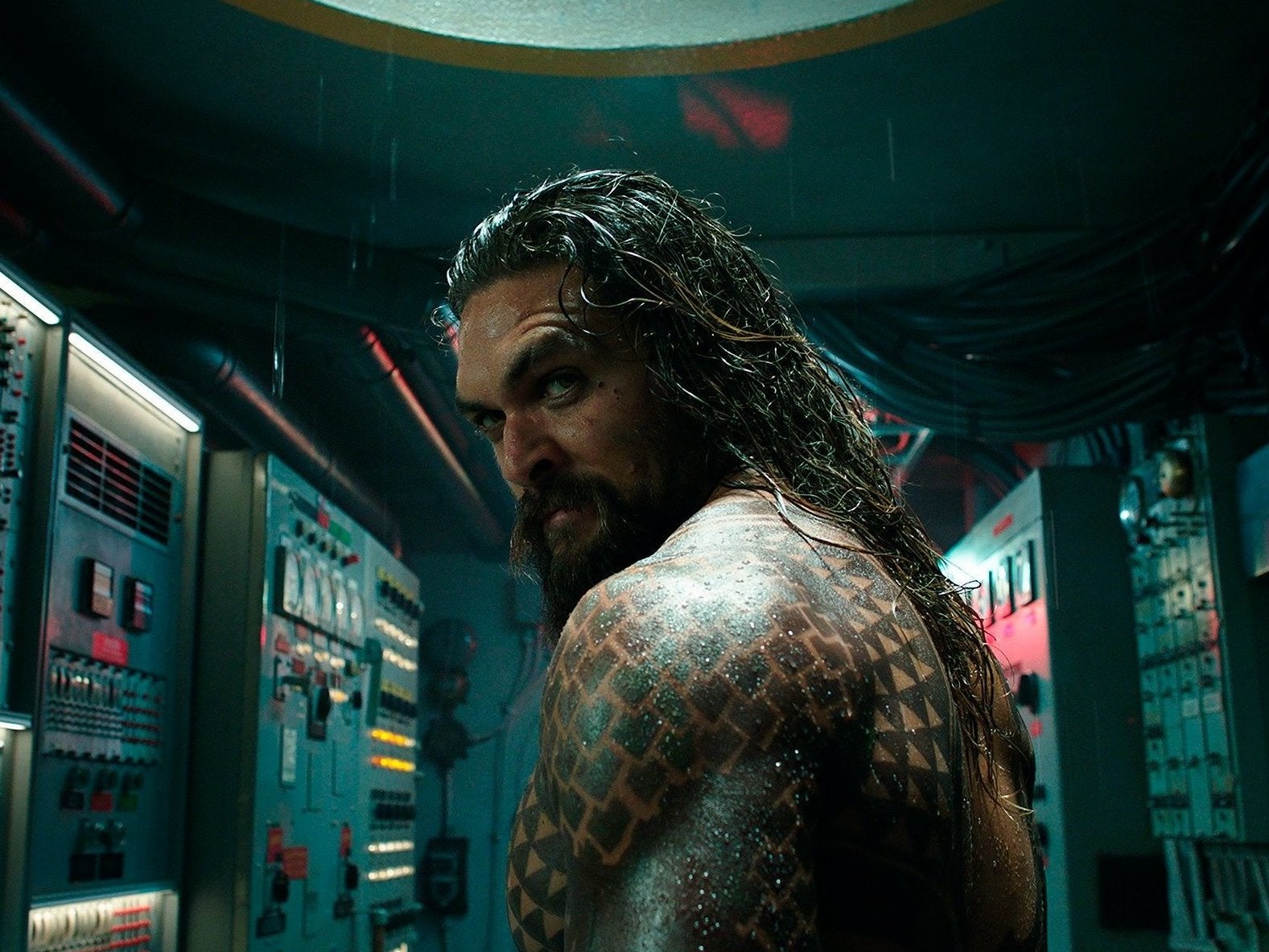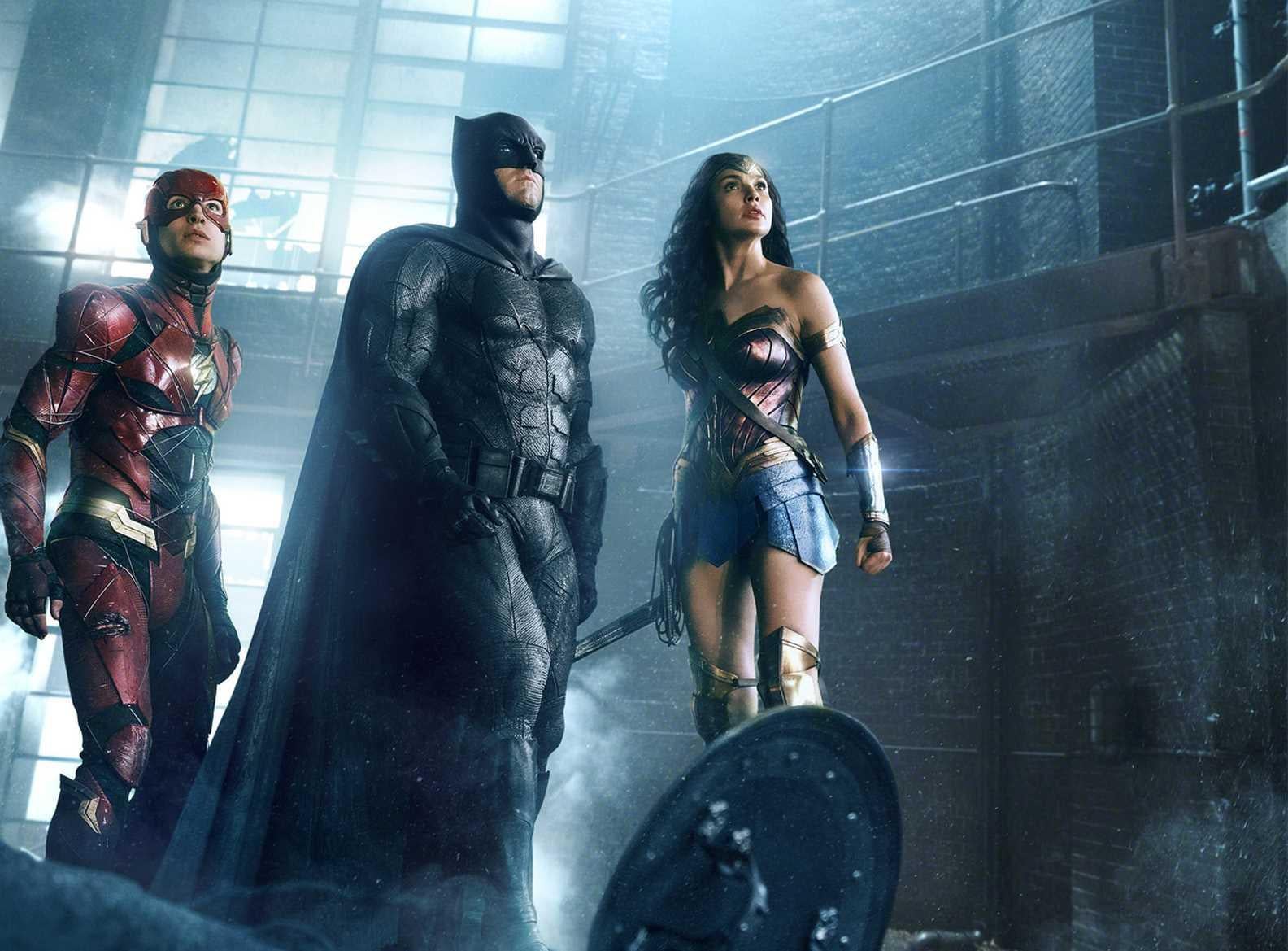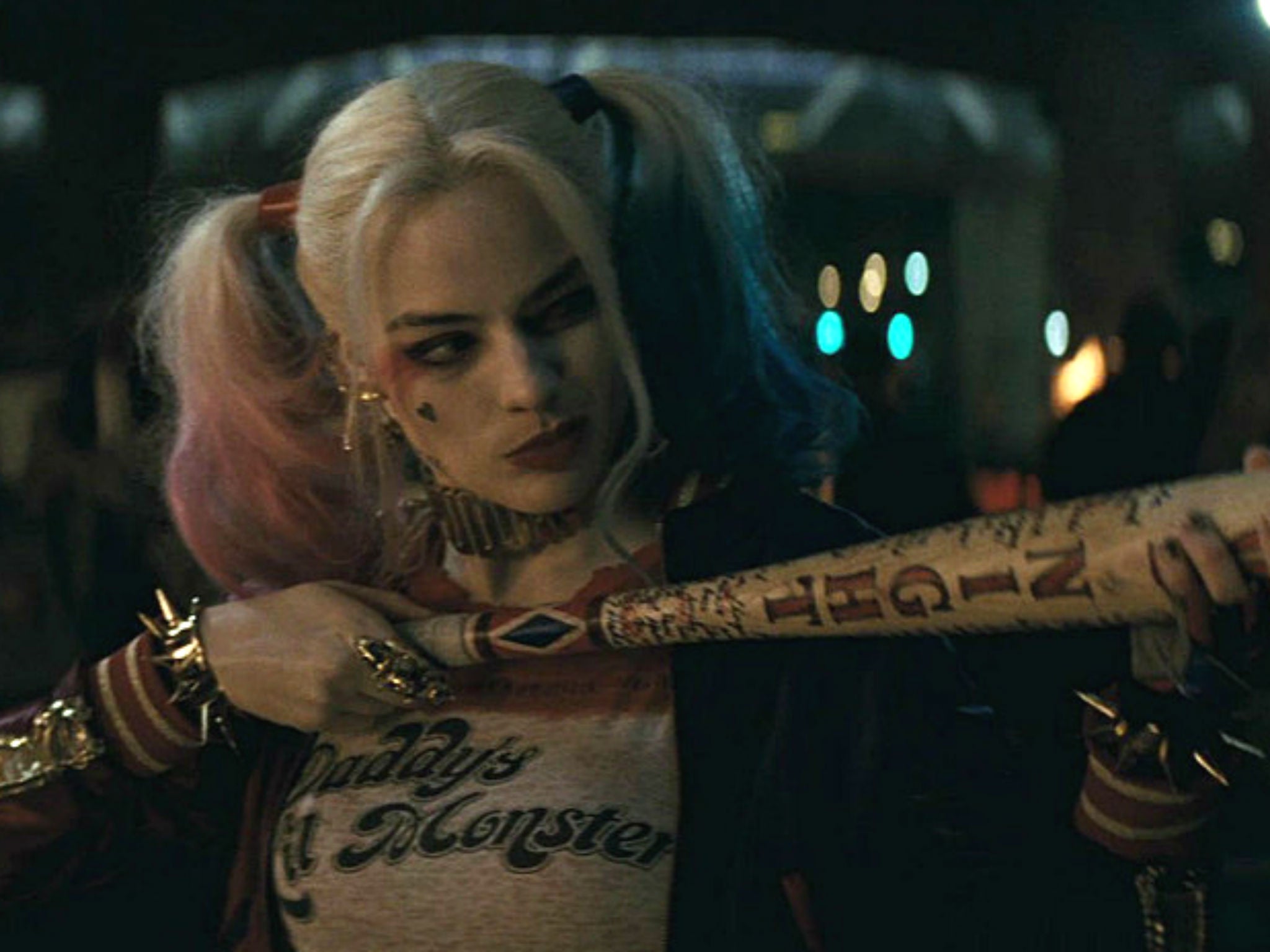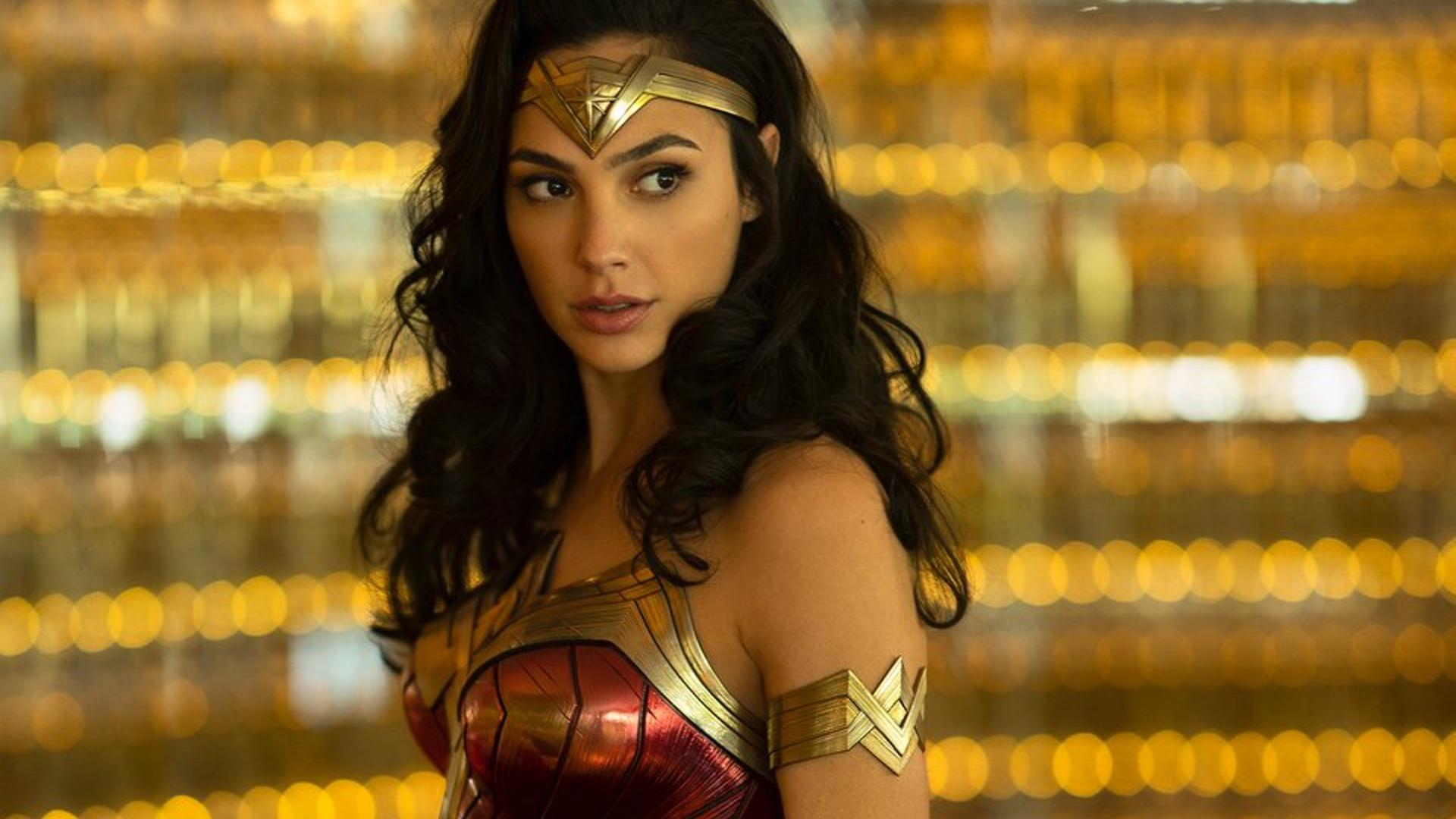Can Aquaman and Wonder Woman save the DC superhero universe?
Clarisse Loughrey looks at what's gone wrong for the DCEU franchise – and asks whether popular characters like Harley Quinn can make things right again


The reviews are in. Critics are – largely – on board with James Wan's oceanic epic Aquaman, making it the second entry in DC Extended Universe (DCEU) to be positively received. The first was 2017’s Wonder Woman, a film that won widespread acclaim and made $821.8m worldwide. Wonder Woman was duly heralded as the saviour of the DCEU.
The Warner Bros’ franchise badly needed saving. While there is immense potential in the DCEU – a shared “universe” of films drawing from 84 years of DC comic book history, allowing iconic superheroes such as Batman and the Flash to crossover and team-up – since its inception in 2013, it’s struggled both critically and at the box office.
Currently, the DCEU lacks the cohesive vision needed to make it feel like a unified cultural force, in the manner of its direct rival in the superhero genre, Disney’s Marvel. Where Marvel’s universe feels coherent, DCEU has suffered from a series of awkward missteps.
It began somewhat shakily in 2013 with Superman vehicle Man of Steel, although a decent box office return offset its mixed critical reception. Batman v Superman and Suicide Squad, both from 2016, weren't box office failures, the latter making $746.8m against a $175m budget, but any positive narrative was spoiled by disastrous reviews – “crushingly puerile” was one critic's description of Suicide Squad. Add to that, both films suffered a huge drop in audience attendance between their first and second weekends of release, indicating particularly poor word-of-mouth. And although last year's Justice League fared slightly better with critics, it was an all-out box office bomb, failing to break even and losing the studio approximately $60m.

The studio clearly realised something was off, and in May 2016 announced a major change. Warner Bros was establishing a dedicated DC Films division, with Geoff Johns and Jon Berg at its helm, in order to give the DCEU a more controlled sense of direction. It was a move taken straight out of Marvel's playbook, DC’s great rival having installed Kevin Feige as the master of its empire in 2007.
But the situation has not proved very stable since, unfortunately. Berg left his position in January this year and was replaced by Walter Hamada. Chantal Nong was then hired as Vice President of DC Films, with Johns that making his exit in June, leaving Hamada and Nong as heads of franchise.

This internal turmoil has been reflected in public indecision over the creative direction of the DCEU. Release dates keep shifting – the Wonder Woman sequel has been moved from 2019 to 2020, for example – while a dizzying number of films have been announced before disappearing into the ether. These include: a Deadshot solo film for Suicide Squad star Will Smith; a Black Adam film starring Dwayne Johnson; Ava DuVernay's New Gods, plus individual movies for Deathstroke, Nightwing, Batgirl, Supergirl, and Plastic Man. And that's not to mention the fact Warner Bros had already decided to expand beyond the DCEU, throwing out other films based on DC characters but with a more auteur spin. For instance, Todd Phillip's The Joker – set to be released next year – will star Joaquin Phoenix in a “gritty character study” that takes its cues from Martin Scorsese's dark satire King of Comedy.
In short, everything seems very confused.
One moment of clarity has emerged from all this madness: last year, DC Entertainment's then-president Diane Nelson announced that the DCEU would be placing less focus on ideas of “interconnectivity”. It’s hard to know exactly what that means at the moment, but it may essentially spell the end of the Justice League approach – that is, a series of team-up movies, with additional solo films for each of the heroes featured. She added that while future films would still sit within the “DC movie universe”, they would more clearly come “from the heart of the filmmaker who's creating them.”
Nelson's word does seem to have some weight, considering the next film on the DCEU's slate is Shazam!, which looks completely different from anything that's come before. The film, which will be released in April, focuses on a 14-year-old foster child named Billy Batson (Asher Angel) who, by shouting “Shazam!“, can turn into an adult superhero (Zachary Levi). The trailers so far have teased a lower-stakes, scrappier approach to the genre, although it's unclear why David F Sandberg has been hired, since he's only ever directed horror before (Lights Out; Annabelle: Creation).

Watch Apple TV+ free for 7 day
New subscribers only. £9.99/mo. after free trial. Plan auto-renews until cancelled.
ADVERTISEMENT. If you sign up to this service we will earn commission. This revenue helps to fund journalism across The Independent.

Watch Apple TV+ free for 7 day
New subscribers only. £9.99/mo. after free trial. Plan auto-renews until cancelled.
ADVERTISEMENT. If you sign up to this service we will earn commission. This revenue helps to fund journalism across The Independent.

Shazam! is an undeniable risk, especially when the DCEU is yet to find its footing. But it will be followed by a safer bet: Birds of Prey (and the Fantabulous Emancipation of one Harley Quinn). The key bit of that baffling title is ‘Harley Quinn’ – the character Margot Robbie played in Suicide Squad. The Joker’s psychotic lover, Harley Quinn proved immensely popular, even when audiences had little patience for the film she was starring in. It's clear the studio is trying to find her a better vehicle – or four. Warner Bros has placed an immense amount of faith in Robbie, and her ability to draw in audiences, with several Harley Quinn movies already announced.

First up, Birds of Prey (due for release in 2020) will team her up with Mary Elizabeth Winstead's Huntress, Jurnee Smollett-Bell's Black Canary, Rosie Perez's Renee Montoya, and Ella Jay Basco's Cassandra Cain. Promisingly, the film is led by some genuinely exciting creative talent: Cathy Yan, who made a splash at Sundance this year with her directorial debut, the offbeat comedy Dead Pigs. Robbie was adamant that she wanted a female director on board, and it's promising to see the studio recognise that women-led projects are not only desired by audiences, but that they're often able to turn a tidy profit, too.
Birds of Prey may be the studio's most crucial test, given the central role Robbie is set to play in its future: she will also star in Suicide Squad 2, Gotham City Sirens (a team-up of Harley, Catwoman, and Poison Ivy), and Harley Quinn vs The Joker. If Birds of Prey flounders, then the DCEU may be in more trouble than ever.

At least they have a safe bet in Wonder Woman 1984: Patty Jenkins returns to direct this sequel, and Gal Gadot is back as the lead, alongside Kristen Wiig as new villain Cheetah. Expectations are high, but with so much returning talent, there's no reason to be concerned.
Little is certain, however, about the fates of Wonder Woman's fellow Justice League members, Cyborg and the Flash, who both had solo films announced ahead of their team-up film's release. The Flash has had a particularly troublesome production history: directors Seth Grahame-Smith and Rick Famuyiwa were hired in quick succession of each other, with both leaving the project due to creative differences. In February of this year, John Francis Daley and Jonathan Goldstein signed on to direct, although there's no sign that things have moved further since. Warners Bros are now facing the issue of star Ezra Miller's busy schedule, since he also has the Fantastic Beasts franchise on his plate.
Meanwhile, Cyborg has held on to its 3 April 2020 release date, but without a director or production date announced, it's hard to believe the project won't be delayed or cancelled in the near future. Curiously, there's also a Green Lantern Corps film scheduled for 24 July 2020, but without a star or director, it seems increasingly doubtful the studio has any intention to move forward with the project.
And then there's the issue of Batman and Superman. A standalone film for Ben Affleck's Batman was announced back in 2014, with Affleck later attached to also write and direct. He's since stepped down from the latter role, in favour of Matt Reeves, which sparked an intense amount of speculation that Affleck was done with the DCEU. A damning article from The Hollywood Reporter not only reiterated the idea, but also claimed that Henry Cavill had been axed from the role of Superman.
None of this has been confirmed by any official channels, but there is a logic behind it: the DCEU needs a fresh star. But it may require more than simply recasting Batman and Superman in the hopes it can free itself from negative associations of the past.
As much as the DCEU has been incessantly pitted against its Marvel equivalent, sparking online warfare between rival fans, the issue is less that DC should be trying to ape Marvel's success, but that it needs to understand what is required for such success: careful planning, a sense of unity between its films, a key roster of characters that resonate with audiences, and – above all else – a focus on good storytelling.
While their future slate has its promising entries, overall there is too much indecision over what direction it is taking. The franchise needs to slow down, centre itself, and rethink what exactly it can offer audiences today. Only then can Wonder Woman and Aquaman really step in to save the day.
Aquaman is in cinemas now
Join our commenting forum
Join thought-provoking conversations, follow other Independent readers and see their replies
Comments
Bookmark popover
Removed from bookmarks